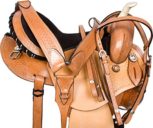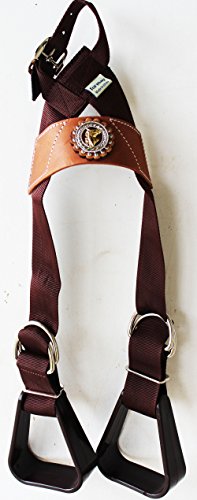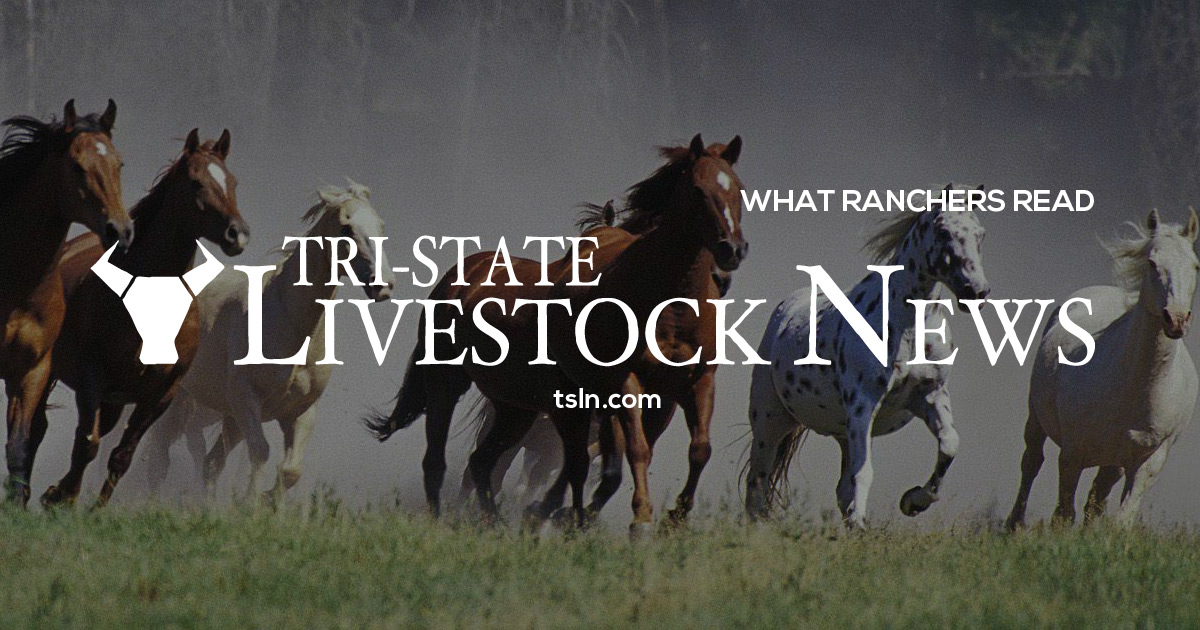Kirch Ranch Honored for Preserving Western Lifestyle in Montana – Tri-State Livestock News
[ad_1] It’s a good thing that Fred Kirch’s mother never heard that mamas shouldn’t let their babies grow up to be cowboys. Like many boys then and now, Fred Kirch wanted to be a cowboy. His dad supported his dream by buying him a horse, a ten dollar pair of boots and a two dollar
[ad_1]
It’s a good thing that Fred Kirch’s mother never heard that mamas shouldn’t let their babies grow up to be cowboys. Like many boys then and now, Fred Kirch wanted to be a cowboy. His dad supported his dream by buying him a horse, a ten dollar pair of boots and a two dollar saddle for his eleventh birthday. Starting when he was ten years old, Fred and some other Billings boys took on the job of herding milk cows, gathering them up from families who lived in town every morning and taking them out of town to graze during the day, then returning them every evening.
When Fred was seventeen he left Billings and started working on the big spreads in south central Montana.
“He was a true cowboy, just like the ones you have that image of,” said Bob Kirch, Fred’s grandson. “He wore a six shooter and he could rope anything on four legs. He worked as a Rep for several ranches that had big herds they’d trailed up from Texas. At that time the fat cattle were trailed to Columbus, loaded on trains and shipped to Chicago. I heard stories that when grandpa would get back to Chicago that’s when he’d buy a new hat.”
Fred spent a decade and a half gaining experience handling cattle and gaining the respect of everyone who knew him. In 1913, he purchased a ranch on Little Rocky Creek in Upper Stillwater Valley at the foot of the Beartooth Mountains, and the Kirch Ranch was born.
These were the days of range wars, and the fellow who sold out was a sheepman who had been burned out by marauding cattlemen.
“They didn’t burn the house but most of the other buildings were gone,” said Bob’s wife, Kathy Currie Kirch. “The range wars truly happened here.”
There was a pretty girl on a neighboring ranch, and in 1917, Fred Kirch and Alice Schwenneker were married. They raised registered Herefords and had eight children, three boys and five girls. Tragically, the two oldest boys both died in a house fire. Gerald, their third son, grew up working beside Fred and getting as much mileage as he could out of being the only boy with five younger sisters.
The family worked hard together and the ranch survived the challenges posed by the economy and the elements during the twenties and thirties.
“My dad’s sisters helped out too,” Bob said. “There were a couple that ran the overshot stacker. One summer the grasshoppers were so thick that they were only able to put up just a little hay. They left a pitchfork on top of the stack when they went in at noon and when they came back after lunch the grasshoppers had nearly eaten the entire handle.”
When Gerald was grown, Uncle Sam needed soldiers. Gerald joined the U.S. Army in 1944 and served in the Pacific theatre during the remainder of World War II.
“My Grandpa was forty-one when my dad, Gerald, was born,” Bob said. “Grandpa always had registered Herefords, but when dad decided to go into the service Grandpa said he was selling the cows because he couldn’t handle the workload of a cow/calf operation by himself. So he went to running yearlings.”
“Dad was with a group of aviation engineers. They built airports and runways in the Philippines and Japan toward the end of the war. Dad was a mechanic and he worked on all the machines they used to do the construction. They were with the third wave of soldiers to be sent into Japan when the Atomic bombs were dropped. They ended up working on building runways at what is now Tokyo International Airport. Dad said they found tunnels under the sidewalks, under everything, and there would have been a lot of tough hand to hand fighting had the war not ended with the bombing of Hiroshima and Nagasaki.”
Gerald came home to the ranch in 1946 and by then Fred was ready to think about retirement. Gerald married Oleafa Hamilton in 1949. A few years later Fred and Alice moved to Absarokee.
Bob joined the family in 1950 and his brother Fred was born in 1952. He has fond memories of growing up on the ranch.
“I was thirteen when my grandpa passed away,” he said. “Even after he and grandma moved to town he came out to the ranch pretty often. He loved to whittle and always had a sharp pocketknife with him and would make little figurines: horses, saddles, or whatever struck his fancy.
“He chewed a little tobacco and back then it came in kind of a form like a little brick. He’d cut off a piece with his knife and then he would cut off a little pinch for whatever grandkids happened to be around! Fortunately, even with that early exposure it was a bad habit I never took up.”
Bob and Fred had plenty of chores to keep them busy on the ranch.
“We had to get up every morning at five or five thirty,” Bob recalled. “We had milk cows and pigs and chickens to take care of. Then we had to run the milk through the cream separator and wash the separator. My dad thought that if you didn’t have pancakes for breakfast it wasn’t a meal, so we had pancakes every morning for breakfast. We’d change our clothes and walk to meet the school bus. We didn’t have TV and learned that hard work never killed anybody. Work always came before play!
“We had sheep too when I was pretty young. I remember one old buck we had; the corrals were muddy and he took me and knocked me down in the mud. One day the sheep got out and my dad got disgusted and he hauled them to town and that was the end of being in the sheep business. Back then everybody in the area had sheep and hauled their wool to the wool pool in Columbus; trucks were lined up for a good quarter of a mile waiting to unload their wool to be shipped away on railroad cars.”
“Fred was a cowboy trying to turn rancher,” said Kathy. “He was a horseman and loved horses. Gerald was the one for whom the ranch really grew and blossomed. He added land, built up fences and corrals and improvements. He was a pistol! Everything had to be in its place; he was a real task master and was always keeping Bob in line. But all you had to do was put a baby in front of him and he just melted.
“Gerald was a warehouse of stories. He was still mentally sharper when he passed away at the age of ninety-four than most people half his age.”
“We had little Farmall A tractors and put up hay with a square baler when I was growing up,” Bob said. “Grandpa had teams but dad was more mechanically inclined. My brother and I stacked all the hay on our place and stacked for all our neighbors. We got five cents per bale and thought we were making a killing. On a good day in good fields we could stack two thousand bales so it added up.”
Tragedy struck the family again when young Fred passed away as the result of a car accident on his sixteenth birthday. Grief was deep, but they carried on together.
Kathy joined the Kirch crew more recently after coming to the area to teach a one-room school at Nye, Montana.
“I had never married, and I was pretty independent,” she said. “I thought I was a confirmed old maid schoolteacher. When Bob and I started spending time together Gerald and Oleafa were so welcoming and treated me like family.”
Bob calves out about two hundred cows each spring and so the ranching tradition is carried forward in the foothills of the majestic Beartooth mountains. His three daughters and seven grandchildren are the fourth and fifth generation and enjoy helping out on the ranch when they visit.
“It’s almost like heaven, it’s so beautiful here,” Kathy said.
Let’s block ads! (Why?)
[ad_2]
Source link








Comments
Comments are disabled for this post.